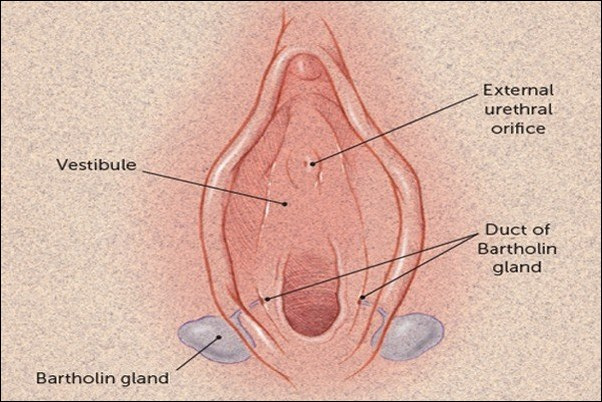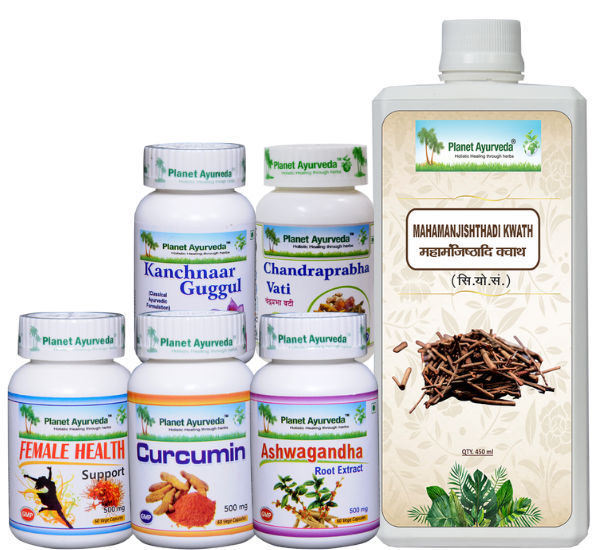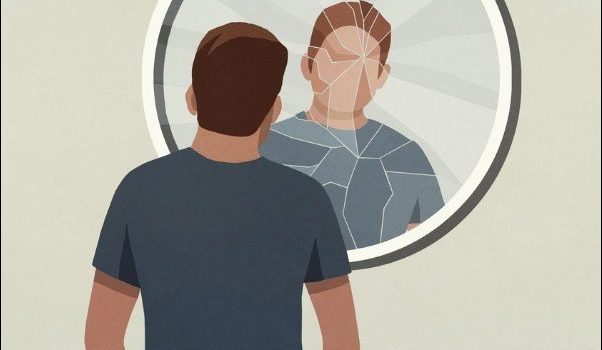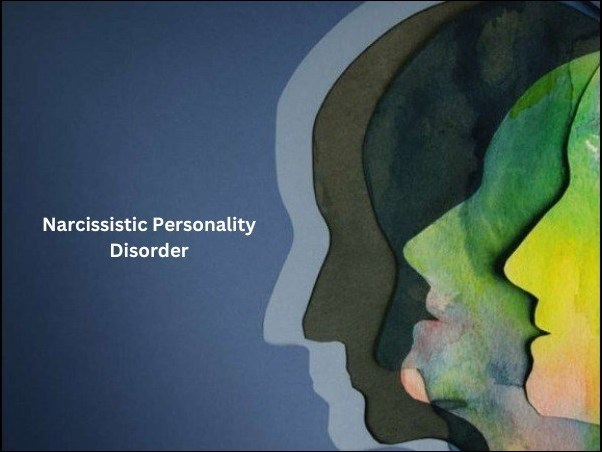Ayurvedic Treatment of Bartholin Gland Carcinoma

ABSTRACT
Bartholin gland carcinoma is a very rare tumorous condition of the female genital tract, in which growth is formed on the vulvar region. It resembles a Bartholin gland cyst or abscess. It mostly occurs in females of middle age or older ones (post-menopausal women). It is a rare disorder, in only less than 1% of female genital tract cancers and 5% of vulvar cancers. The exact pathogenesis of this carcinoma is unknown whereas it may be due to various infections of genital tract. The major pathways for this cancerous condition is local invasion, lymph node metastasis, and hematogenous metastasis. Its diagnosis depends on pathological analyses and management is done surgically but in this article, we will know the complete treatment according to classical Ayurveda texts.

INTRODUCTION
The bartholin gland carcinoma is a type of cancer of the vulvar region in the bartholin gland. This condition typically presents with a painless mass like structure in one side of vagina opening in females. This mass can be big or small and may be deep under the skin or near the lying surface. The most of bartholin gland carcinoma appears from squamous cell carcinoma. Due to the deep location of the bartholin gland and lack of early clinical symptoms mostly this cancerous condition is misdiagnosed. The prognosis of this disease is poor due to misdiagnosis and delayed treatment. If it is early diagnosed then proper management can be done of bartholin gland carcinoma and get cured. Vulval cancers are the fourth most common gynecological cancers following uterine, ovary and uterus. The most common method for spreading lesions is lymphatic.
ANATOMY OF BARTHOLIN GLAND
Bartholin glands are pea sized glands located on each side of the vaginal opening. It is located in the vulvar vestibule. The function of these glands is to lubricate vagina through their secretions. When these glands get blocked it leads to formation of bartholin cyst. These cysts are very common and initially do not show any symptoms and if not treated mass growth increases and leads to formation of bartholin gland abscess and further carcinoma. The various carcinoma of bartholin gland are
- Adenocarcinoma
- Squamous cell carcinoma
- Adenosquamous carcinoma
- Transitional cell carcinoma
CAUSES
In most of cases of bartholin carcinoma the major cause is unknown, some of causes are as follows
- HPV ( Human Papillomavirus)
- Cervical cancer
- HIV infection
- Other infections
- Post-menopausal syndrome
SYMPTOMS
The signs and symptoms of bartholin gland carcinoma is as follows
- Painless lumpy growth (one side of vaginal opening).
- Red, pink or white bumpy warts
- Persistent itching
- Bleeding (not due to menstruation)
- Burning sensation
- Vaginal discharge
- Pain and burning sensation during urination
- Vaginal skin changes as it become pigmented
- Dyspareunia
- Dysuria
RISK FACTORS
The risk factors for bartholin gland carcinoma are as follows
- Age
- Cervical cancer
- Alcohol and smoking
- Family history
- Chronic granulomatous disease
- Vulvar dystrophy
- Immune deficiency syndrome
- Prior H/o cervical cancer
- Nulliparity women
- Systemic illness ( Hypertension,diabetes)
DIAGNOSIS
- In Ayurveda, examination is done by darshan, prashan and sparshan (medical history).
- Histological examination (to know it is squamous cell or adenoid cystic or adenocarcinoma)
- Biopsy
- CT ( Computerized Tomography)
- MRI (Magnetic Resonance Imaging)
- PET( Positron Emission Tomography)
AYURVEDIC OVERVIEW
In Ayurveda bartholin gland cyst can be correlated with “yoni kand” (yoni= vagina, kand= tuberous growth, as it is a vaginal disease presenting mass-like growth in vagina. It is tridosha disease where vata dosha is predominant. In classical texts there are four types described
-
- Vaataj
- Pitaj
- Kaphaj
- Sannipataj (combination of all 3 doshas- vata, pita, kapha).
Causes of yoni kanda (vaginal cancer) acc. to Ayurveda are as follows
-
-
- Diva swapan ( sleeping during daytime)
- Ati krodh, vyayam and maithun ( excessive anger, exercise, coitus)
- Kshat nakh and dant ( breaking of nails and teeth)
-
Due to these causative factors, all tridoshas (vata, pitta and kapha) get aggravated and lead to formation of disease. Treatment of yoni kanda (vaginal cancer) acc. to Ayurveda are as follows
-
-
- Yoni puran ( vaginal filling)- keeping medicinal powder in vagina such as gairik (red ore) , amarasti (kernel of mango)
- Yoni pichu (vaginal sponging) – Mushika taila is used for sponging in which oil is extracted from a rat’s intestine.
- Yoni sechan (vaginal irrigation) – The vaginal part is irrigated with triphala kwath (Amalaki- Phyllanthus emblica, Haritaki- Terminalia chebula, Bibhitaki- Terminalia Billerica decoction).
-
MANAGEMENT
The bartholin gland carcinoma can be managed by following methods
-
-
- Antibiotics
- Primary radiation therapy
- Surgical drainage
- Marsupialization (opening is made by incision for drainage)
- Vulvectomy
-
HERBAL REMEDIES FOR BARTHOLIN GLAND CARCINOMA BY PLANET AYURVEDA
Planet Ayurveda is a GMP and ISO-certified company, it has been spread worldwide due to its herbal and natural products. All products are manufactured as described in ancient classical texts. Planet Ayurveda provides the best combination of herbal remedies for various diseases. All products are free from chemicals, yeast, additives, and color. There is no artificial preservative added in the preparations. The best herbal combination for Bartholin gland carcinoma by Planet Ayurveda are as follows are as follows are as follows
-
-
- Curcumin Capsules
- Ashwagandha Capsules
- Chandraprabha Vati
- Kanchnaar Guggul
- Mahamanjisthadi Kwath
- Female Health Support
-
PRODUCT DESCRIPTION
1. Curcumin capsules
It is standardized capsule preparation from extract of haridra (Curcuma longa), it has anti-inflammatory, anti cancerous properties and balances all vitiated doshas (vata, pitta and kapha). These capsules help in wound healing, improve skin health and boost the immune system.
Dosage- One capsule twice daily with plain water after meals.
2. Ashwagandha capsules
It is a single herb capsule formulation prepared by using plant extract of ashwagandha (Withania somnifera). It is a herb which balances all vitiated doshas and enhances the reproductive system of both male and females. It improves skin health, muscle strength and removes cancerous conditions.
Dosage-One capsule twice daily with plain water after meals.
3. Chandraprabha vati
It is a standardized tablet preparation in Ayurveda classical texts. The main ingredients present in chandraprabha vati are shilajit (Asphaltum), guggul (Commiphora mukul). It has anti-microbial activity and it has skin rejuvenating properties. It has mild anti-infective and analgesic properties.
Dosage-Two tablets twice daily with lukewarm water after meals.
4. Kanchnaar guggul
It is standardized tablet preparation from our classical texts. The key ingredients are kanchnar (Bauhinia variegata) extract, guggul (Commiphora mukul), amalaki (Emblica officinalis), haritaki (Terminalia chebula), etc. It has anti nodular and anti-inflammatory properties, it reduces any growth, cyst.
Dosage- Two tablets thrice daily with lukewarm water after meals.
5. Mahamanjisthadi kwath
It is a decoction formulation from our classical texts. This decoction contains extracts of manjistha (Rubia cordifolia), nagarmotha (Cyperus rotundus), giloy (Tinospora cordifolia), etc. This decoction has a detoxifying property and it cleans our blood. It has anti allergic, antioxidant and anti-inflammatory properties.
Dosage- Two tablespoons of decoction taken twice daily after meals after mixing it with lukewarm water.
6. Female health support
It is standardized capsule formulation prepared from three ingredients mainly, it contains extract of Ashoka (Saraca indica), lodhra (Symplocos racemosa) and shatavari (Asparagus racemosus). These capsules maintain overall health of the female reproductive system and it regulates normal hormonal balance in females. It helps on vitiated vata and pitta dosha in the female body.
Dosage-One capsule twice daily with plain water after meals.
Contact Planet Ayurveda Support Team to provide you the costing / ordering and delivery information at – costing.planetayurveda@gmail.com or Call at 0172-521-4030 (India), +91-172-521-4030 (Outside India) or Whatsapp at (+91) 9915-593-604.
CONCLUSION
Bartholin gland carcinoma can be cured fully through Ayurvedic medication when it is properly diagnosed at time. You can follow above guidelines regarding bartholin gland carcinoma but for medicinal advice you must concern our doctors. The team of Planet Ayurveda is always available for your queries as there are well experienced doctors for your best management.




